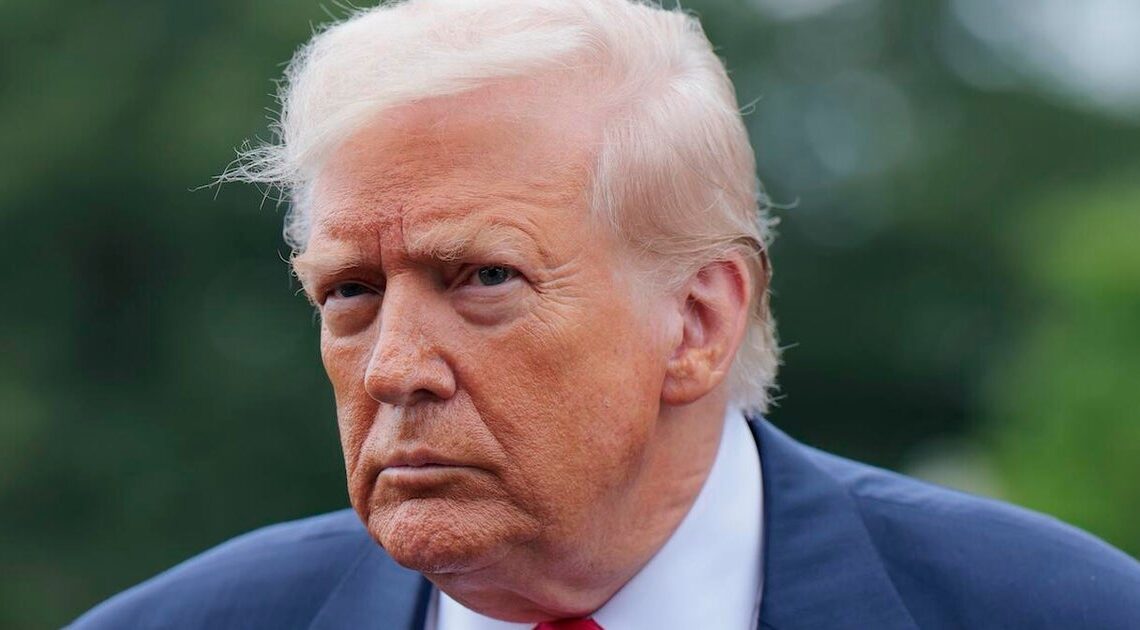
Trump signs executive order laying out new rules for NIL deals and money in college sports
24. July 2025
President Trump on Thursday introduced new rules for the name, image and likeness and revenue-sharing deals that have shaken up college sports in recent years, seeking to rein in what the White House called an “out-of-control, rudderless system.”
The executive order seeks to ban “third-party, pay-for-play payments to collegiate athletes,” while still allowing athletes to strike brand endorsement deals. It also says any revenue-sharing arrangements between universities and athletes should expand or preserve “scholarships and collegiate athletic opportunities in women’s and non-revenue sports.”
Mr. Trump’s order also said schools with more than $50 million in athletic revenue cannot reduce the number of scholarship opportunities for “non-revenue sports” — typically sports other than football and basketball. Schools that draw more than $125 million are directed to increase their non-revenue scholarships in the coming academic year.
The president also directed the National Labor Relations Board to work on “clarifying the status of collegiate athletes” — likely referring to moves by some college athletes to be deemed university employees and form labor unions.
It’s not clear how the order will be enforced. Mr. Trump tells top administration officials to “develop a plan” within 30 days to advance the order using “all available and appropriate regulatory, enforcement, and litigation mechanisms.” It floated decisions about federal funding, Title IX enforcement and work with Congress.
CBS News was first to report on Mr. Trump’s plan to sign a college sports-focused executive order last week.
In recent years, collegiate sports have been reshaped by drastic policy changes that allow student-athletes to make millions of dollars while still in school.
The NCAA in 2021 permitted athletes to earn money for the use of their name, image and likeness, or NIL. Since then, some big-name student-athletes have scored the types of lucrative brand endorsement deals that were once more closely associated with professional athletes.
Rules restricting schools from directly paying athletes have also been loosened. A legal settlement involving the NCAA earlier this year allowed schools to start sharing revenue with athletes for the first time, and the Supreme Court ruled in 2021 that the NCAA’s attempts to limit some benefits to athletes violated antitrust law.
The changes mark a stark departure from college sports’ previous operating model, in which athletes were thought of as amateurs and were paid in college scholarships. That system faced stiff criticism from many student-athletes, who viewed it as unfair to block them from being compensated even as their work, in some cases, brought in millions of dollars for their schools.
But the new landscape has also drawn fears about whether smaller colleges will struggle to compete with their larger peers’ checkbooks, and whether sports that don’t generate much revenue for colleges will face more pressure. And fans of certain schools have formed so-called NIL collectives that draw in donations and offer endorsement deals to players, an arrangement some critics have called a “pay-to-play scheme.”
“Absent guardrails to stop the madness and ensure a reasonable, balanced use of resources across collegiate athletic programs that preserves their educational and developmental benefits, many college sports will soon cease to exist,” Mr. Trump’s executive order signed Thursday states.
Meanwhile, most states have passed their own laws regulating NIL, but the federal government doesn’t have a uniform standard. This week, a House committee advanced the SCORE Act, which would set national NIL rules. But there’s concern that the bill doesn’t do enough to protect athletes’ interests.
The NCAA said in a statement after Thursday’s executive order that it “appreciates the Trump Administration’s focus on the life-changing opportunities college sports provides millions of young people.”
“The NCAA is making positive changes for student-athletes and confronting many challenges facing college sports by mandating health and wellness benefits and guaranteeing scholarships, but there are some threats to college sports that federal legislation can effectively address and the Association is advocating with student-athletes and their schools for a bipartisan solution with Congress and the Administration,” NCAA President Charlie Baker said in a statement.